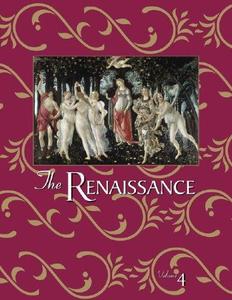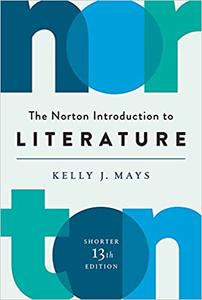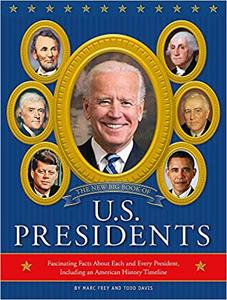
The Student's English-Sanskrit Dictionary By Vaman S. Apte
2002 | 1366 Pages | ISBN: 8120803000 | DJVU | 146 MB
One of the best reference works available. We handle all the Motilal Sanskrit books, this is excellent. Paper edition.

The Social Contract and The First and Second Discourses By Jean-Jacques Rousseau
2002 | 326 Pages | ISBN: 0300091400 | PDF | 11 MB
I read this book for a graduate class in Philosophy. Jean Jacques Rousseau born (1712-1778), in Geneva mother dies in childbirth, he was an engravers apprentice. Stayed out too late one night and locked out of the city, knew he would get in trouble for it so he takes off for France, and meets Madame De Warrens becomes his lover and she converts him to Roman Catholicism. He had a lifelong mistress had 5 kids which he left with an orphanage, which is amazing considering he wrote the book "Emile," which was a guide to raising and educating young children. He neglected the opportunity to put theory into practice. To begin at the beginning, famous lines of book "The Social Contract," "Man is born free, and everywhere he is in chains." The question he asks, how do we find a way to get people to live together in groups? To live together in society and yet still make it true that each person only obeys himself that leaves us as free as when we were in the state of nature. He thinks he has the answer, he thinks he can legitimate, a kind of society, where people have this much freedom. There are certain things that he thinks are necessary for this, first, it has to be a society with general laws. It can't be that whoever is in charge of the government gets to do whatever they feel like doing. There has to of been laws made that authorize this. Second, there has to be universal consent to the laws, everybody has to accept the laws. Now this may be a little unclear, because there is a point that Rousseau talks about majority rule. It does make sense though there is a sense that he believes that the people have to consent to all of the laws, it has to be unanimous, it is just going to take a little while to get to that point. We will see how he reconciles these ideas. Third, there has to be unlimited Sovereignty, people have no rights against the laws you can't say the laws are illegitimate because they violate your rights the way that Locke would say for example people completely give up their rights to the collective. Therefore, there is no worry that a law might trespass on somebody's rights. For Rousseau, be sure to understand that this idea of sovereignty means the power to make laws. Therefore, it is a little bit different say than what you got out of Hobbes were he talks about the sovereign's power. For Hobbes, sovereign power is the power to say what goes. There is no real distinction between what we would call legislative power and executive power. You know the power to make the law and the power to enforce the laws. For Rousseau, sovereignty means the power to make the laws. Therefore, that's the power that is unlimited. Everything the state does has to be done in accordance to the laws. However, there is no limit on what the laws can be. At least no limits coming from the idea of violating individual rights. The only limit on the power of the state is the laws. There is this kind of notion that periodically there would be an assembly of people to come together to decide on the laws and make new ones. The power like a monarchy or oligarchy has power to enforce the laws and they do what ever the assembly tells them to do. The general laws are there and then the executive power is in charge of applying those general laws to specific cases. However, all they can do is apply those general laws. They cannot freelance and do stuff on there own. Rousseau really praised Sparta as a model democracy. So, here's the kind of society that Rousseau thinks that makes it possible for us to enjoy freedom and social life. We give up all power to the state; we claim no individual rights to ourselves against the government. We give up complete power to the state we do not think we have any individual rights that can limit what the state can do but we insist that the state only act in accordance with general laws and these be laws everybody consents and agrees to. Now you ask, how in the world can we have unanimous consent to the law? With any size or group, how do you get unanimous consent? Rousseau's answer is that in a proper society, one where everyone has been brought up properly and so on, they think of them selves as a community there will be two different choices that people can make about the laws that they want. Two different standpoints, for which they will choose what the laws should be. 1. Their individual wills, which will be a choice about what is best for each persons point of view, 2. However, each citizen will also possess a "General Will." There will as a citizen. The general will of every citizen will be the same. Their general will, will from each of them will be in favor of the laws that will be best for the community. Even if it is not best for them as an individual, sometimes it will be. Just like Kant thinks that everybody's Numinal self is in favor of the same law, Rousseau thinks that in a proper political community every bodies general will is in favor of the same laws each citizens general will, will be the same. Even if from your own perspective, you do not like some of the laws that are passed, if in fact they are laws that are best for the community, you will consent to them from the standpoint of your general will. Therefore, everybody does consent to whatever laws there are that are best for the community. Now ideally, people will think of themselves as citizens first and individuals second that they will have no hesitation in obeying the laws that the general will is in favor of, but people being what they are sometimes people will not obey the laws even when their general will has consented to the laws. Rousseau says people will be acting in accordance with their general will as a citizen rather than their private or individual will. That if one should be tempted or inclined to act on the basis of their individual will in a way that is contrary to their and everybody else's general will, then they ought to be forced to obey the general will and the laws it endorses. Not just be forced to obey, but in being forced to obey you are actually being made more free than you would be if you did in a sense what you think you want to do. You can call this Rousseau's "paradigm of positive freedom." Rousseau does not think that any group of people can form this kind of society. Before a society can form a government under this kind of basis, it will already be a society that exists under illegitimate rule. Therefore, even though Rousseau talks about the state of nature the way Hobbes and Locke does, he does not really have the expectation that groups of people are going to go from the state of nature straight into a legitimate society. They are going to start out with some kind of illegitimate rule, and that is going to give them enough cohesion, this kind of shared experience they have had, that then they are going to be able to form a legitimate government. They are going to be similar enough in outlook and have enough of a bond to the society, that they have the general will. This can only happen in a relatively small community. They must have shared values and experience. He thought that the only place in his time in Europe that could do this was the island state of Corsica. Once the laws are already in place you are agreeing to them, it is tacit consent. He believes that when the society is first formed legitimately, people have to give expressed consent. There is not some kind of disconnect that you would get in say some kind of fascist political philosophy like what is good for the community and what is good for the people. There is almost no connection between those things. Somehow for Rousseau there seems to be some kind of connection that what's good for the community is some kind of function of what is good for the individual people in the community. But, the nature of that function to me is just opaque, he doesn't get whatever he is trying to say across there. In practice obviously this is hard to do. Because Rousseau is hostile to the idea that you could have just a select group of people to make the laws, this means he has to be against representative democracy. The only societies that are this democratic that have worked are societies that have had slaves (Greek and Roman). Because how much time does citizenship take without representatives, we have to be in assembly all the time so you need slaves to cook and raise crops. So, you should have this picture in mind that every so often the citizens get together to develop laws, what they should be doing of course is trying to vote in a way that the general will tells them to vote, whatever is best for the community. Rousseau is not so naïve to think that they are all going to unanimously and spontaneously put their hands up at the same time. People are going to disagree, abut what the law is. Majority rule he says in that case. However, it is not the majority rule in the spirit that we think of it, where the side with the most votes wins and the losers are disappointed because their way didn't prevail. No, what Rousseau says is the minority should look at this as they were wrong about what the general will was in that case, and so they should be happy that what they wanted didn't get adopted because that would have been a mistake. The majority essentially knows best. It is as if they are all trying to get to the same place, some will get there some will be misled and they should be grateful to be straightened out. One can see how totalitarian's can embrace some of Rousseau's writings. Recommended reading for anyone interested in philosophy, political science, history and, psychology.

Keith Stanley, "The Shield of Homer: Narrative Structure in the Illiad "
English | ISBN: 0691607575 | 2014 | 484 pages | PDF | 24 MB
In this masterly interpretation of narrative sequence in the Iliad, Keith Stanley not only sharpens the current debate over the date and creation of the poem, but also challenges the view of this work as primarily a celebration of heroic force. He begins by studying the intricate ring-composition in the verses describing Achilles' shield, then extends this analysis to reveal the Iliad as an elaborate and self-conscious formal whole. In so doing he defends the hypothesis that the poem as we know it is a massive reorganization and expansion of earlier "Homeric" material, written in response to the need for a stable text for repeated performance at the sixth-century Athenian festival for the city's patron goddess.

The Renaissance: An Encyclopedia for Students Edition 1. By Charles Scribners & Sons Publishing
2003 | 241 Pages | ISBN: 0684312816 | PDF | 15 MB
Based on the Dartmouth Medal-winning Encyclopedia of the Renaissance (2000), this set has been prepared especially for non-specialists, focusing on the Renaissance-era topics most studied in high school world history, art, literature, economics and science curriculum. Organized alphabetically, this illustrated, full-color set includes entries on a range of topics, including: Florence Galileo Heraldry Humanism Medici family Opera Piracy Rhetoric Shakespeare Spanish Armada Leonardo da Vinci And many others Features include a master chronology with topical timelines; a bibliography with age-appropriate further reading sources and a comprehensive index. (20050101)

The Norton Introduction to Literature, Thirteenth edition by Kelly J. Mays
English | Oct 24, 2018 | ISBN: 0393664945 | 2112 pages | PDF | 36 MB
Develop close readers and confident writers

The Nile River - Major Rivers of the World by Baby Professor
English | August 1, 2019 | ISBN: 1541977203 | 84 pages | Rar (PDF, AZW3) | 18 Mb
The Nile River has been flowing for generations, and with it, history was made. In this book, you are going to read and learn about the Nile River as one of the major and most historic rivers in the world. Its important to learn about geography to fully grasp its cultural context too. Go ahead and grab a copy today.

The New Japanese Cookbook :
From Kyoto to Tokyo Discover Delicious Japanese Cooking with Easy Japanese Recipes
by BookSumo Press
The New Big Book of U.S. Presidents Fascinating Facts About Eash and Every President, Including a...

Running Press, "The New Big Book of U.S. Presidents: Fascinating Facts About Eash and Every President, Including an American History Timeline"
English | ISBN: 0762471441 | 2021 | EPUB | 56 pages | 42 MB
Updated for 2020, readers can easily relive the course of American history through a detailed timeline, more than 50 vivid photographs and illustrations, information about each president's term in office, and the major political issues of each era.

The Middle Ages: A Captivating Guide to the History of Europe, Starting from the Fall of the Western Roman Empire Through the Black Death to the Beginning of the Renaissance by Captivating History
English | October 17, 2019 | ISBN: 1950924254 | 110 pages | Rar (PDF, AZW3) | 1.12 Mb
If you want to discover the captivating history of the Middle Ages, then keep reading...

Kate Millett, "The Loony-Bin Trip"
English | 2000 | ISBN: 0252068882, 0671679309 | 320 pages | EPUB | 0.463 MB
Millet, author of the landmark Sexual Politics , tells of her struggle to regain control of her life after being diagnosed with manic depression. Haunted by recollections of two brief commitments to mental hospitals, she becomes increasingly terrified of being committed again. Her nightmares come true when she is confined to a mental hospital while traveling in Ireland. A new preface comments on recent movements for patients' rights and notes books that have begun to tread the still-taboo ground of psychiatric confinement. Lacks a subject index. Millet is a feminist activist and writer. Annotation c. Book News, Inc., Portland, OR (booknews.com)


